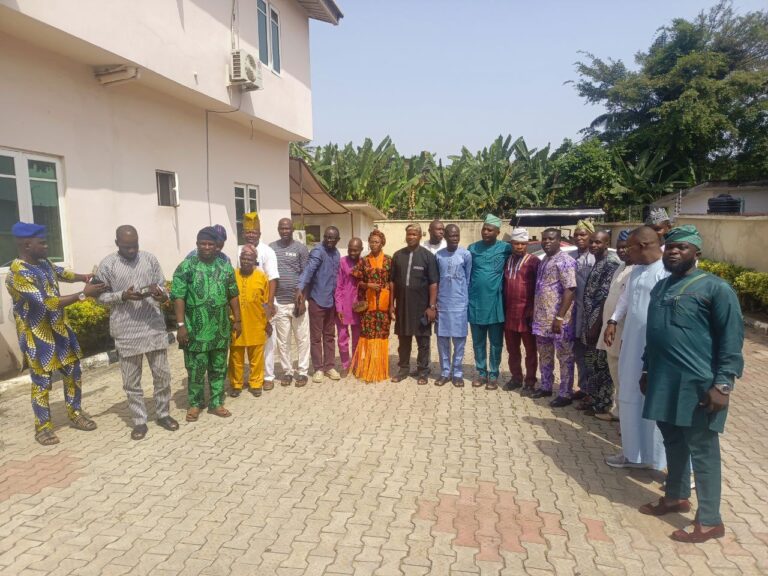
In a renewed push to safeguard the health and rights of women and girls in Nigeria, stakeholders in the health, legal, and gender advocacy sectors have called for a comprehensive approach to combat the growing dangers of unsafe abortion and other forms of gender-based violence.
This call was made on Wednesday during a high-level roundtable meeting held in Abeokuta, Ogun State, focusing on the progress and challenges in achieving Sexual and Reproductive Health and Rights (SRHR) across the state.
The event, attended by medical professionals, lawyers, gynaecologists, civil society actors, and government representatives, emphasized the urgent need for increased public awareness, stronger legal protections, and improved access to reproductive health services in Nigeria—particularly for vulnerable women and girls.
One of the key voices at the meeting, Dr. Abiola Akiyode-Afolabi, founder of the Women Advocates Research and Documentation Centre (WARDC), drew attention to the tragic consequences of unsafe abortion practices in the country. She said Nigeria currently ranks among the top countries with the highest maternal mortality rates globally, second only to India. A significant portion of these deaths, she noted, result from unsafe abortions carried out in secrecy and under unsafe conditions.
Dr. Akiyode-Afolabi stated, “Our goal is simple — to save lives. Too many women and girls are dying from causes that are completely preventable. Unsafe abortion is one of the biggest contributors to maternal deaths in Nigeria, and we cannot afford to continue losing our women to avoidable complications. This roundtable is about charting a way forward to ensure access to safe, legal, and affordable reproductive health services for all.”
She applauded Ogun State for passing the STOP Guidelines — a policy framework designed to provide clear guidance on when safe termination of pregnancy can be legally and medically permitted. According to her, the guidelines not only address cases of rape and incest but also provide direction on medically necessary terminations for conditions like cancer, diabetes, and other health issues that may endanger a woman’s life during pregnancy.
Also speaking at the event was the Ogun State Commissioner for Women Affairs and Social Development, Mrs. Motunrayo Adeleye, represented by the Permanent Secretary in the ministry, Mrs. Adejumoke Adewole. She underscored the importance of turning policy into law by urging the state legislature to give the STOP Guidelines full legal backing.
Mrs. Adewole said, “We have taken a bold step with the STOP policy in Ogun State, but we must go further. We need to ensure it has the power of law so that women and girls, especially those who have suffered rape or incest, are protected. Legal backing would also allow our health institutions to confidently offer safe termination services within the bounds of the law.”
She called for the revision of existing legislation to reflect modern realities and to provide protection and support for survivors of gender-based violence. The Commissioner’s representative emphasised that rape and incest victims often face not only psychological trauma but also social stigma, which makes access to safe reproductive healthcare even more critical.
From a regional perspective, the Senior Gender Equality Adviser at the Centre for Reproductive Rights, Nairobi, Kenya, Caroline Wambue, commended Ogun State for leading efforts in aligning national laws with global reproductive rights standards. She noted that the state has set a strong example in interpreting Nigeria’s existing legal framework in ways that advance women’s health.
Wambue remarked, “What Ogun State has done is commendable. Interpreting national law to develop a guideline like the STOP policy is bold and forward-thinking. I urge other states to learn from this and act. In fact, we are calling on Lagos State to revisit and reinstate its own suspended safe abortion guidelines.”
In the medical field, Dr. Olonode Luqman, a gynaecologist and public health advocate, gave further insight into the public health risks associated with unsafe abortion. He revealed that approximately 13% of maternal deaths in Nigeria are directly linked to unsafe abortion procedures, many of which are carried out by untrained and unlicensed individuals.
He explained that ignorance, stigma, and lack of access to safe health services drive women to dangerous alternatives. However, he noted that access to healthcare has greatly improved with the introduction of the Ogun State Health Insurance Scheme, which subsidizes many medical services, including reproductive care.
Dr. Luqman said, “What we need now is proper information dissemination. When people know that they can access quality reproductive health services at little or no cost under the health insurance scheme, they are less likely to seek unsafe alternatives. Education is key. We must break the silence around abortion and other reproductive health issues and empower women to seek the right care.”
Participants at the roundtable agreed on several action points, including; the need for sustained awareness campaigns in both urban and rural areas, Immediate efforts to provide legislative support for the STOP policy, Expansion of health insurance coverage to include comprehensive reproductive health services, Continuous training for medical personnel on SRHR guidelines, A review of Nigeria’s existing abortion laws to reflect global best practices and humanitarian considerations.
As Nigeria continues to grapple with a high maternal mortality rate, unsafe abortion remains a deadly yet preventable factor. Stakeholders at the Abeokuta forum say the time to act is now, insisting that the lives and rights of women and girls must be protected through bold policies, effective laws, and access to care.
With Ogun State taking the lead, all eyes are now on other state governments to rise to the occasion and put an end to the silent crisis of unsafe abortion and gender-based violence.






